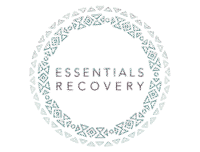Detoxing from heroin can seem daunting at first. For individuals who have involuntarily experienced withdrawal, many people assume it’s the same process. With professional help, withdrawal symptoms can be successfully managed without stigma or judgement.
There are a variety of unexpected feelings when going through professional detox. Some of these emotions can arise from group therapy or independent relationships between clients. Emotions often expressed while detoxing include:
- Relief
- Acceptance
- Anxiety
- Hope
What’s Different About A Heroin Relapse?
A heroin relapse can feel devastating. Not only is it stressful and upsetting to the individual, but their family and friends may be wondering what happened. Feelings of guilt can stand in the way of recovery.
A heroin relapse may also have unexpected physical consequences. Using heroin after any period of abstinence can be particularly hard on the body. If you have relapsed on heroin and are looking to detox, professional help can help with both psychological and physical discomfort.
What To Expect During Detox
Detox is the process of eliminating heroin from the body. The effects of this process are usually felt two days after heroin use. Regardless of how heroin is used, this experience will include both physical and psychological symptoms.
Muscle cramps and nausea are likely to happen during the beginning stages of detox. It may be increasingly difficult to walk. Before this stage of detox, it is important to stay well-hydrated and nourished. Digestive issues, cold sweats, and tremor are also likely to occur in those who do not have prescribed medication.
The Emotional Side Effects
Anxiety and depression are common during this time. Anxiety usually happens before depression and can cause insomnia. Feelings of remorse or guilt are common and some individuals may experience paranoia. A balance of privacy and help is ideal for both comfort and security.
Depression may be less severe during detox, but it can last longer. Depression is often at its worst during the tail end of detox. Due to a lack of energy and the realization of what’s ahead, many people may feel hopeless without the right kind of support. This can be an especially dangerous time for heroin relapse.
Relationships During Detox
Many people understand what is truly important during the detox phase. When heroin is completely out of the system, the mind can truly process what has happened. If you have lost friends or family members due to heroin use, detox is a time for reflection.
Getting in touch with family during this time can be extremely complicated. Even for supportive families that have plenty of resources, trust issues and emotional fragility are difficult to overcome. Understanding the complex issues that surround substance use disorder can take more than just a few days. Speaking with a counselor and finding a structured way to communicate may take time and focused effort.
Working While Detoxing
Detox can be handled in several ways. Detox without professional help will likely extend the discomfort. Proper nutrition, hydration, medication for withdrawal symptoms, and a clean living situation, may be increasingly rare for those living with heroin use. Individuals who are fresh off heroin may still live with others who are still using. Even roommates that are using other mind-altering substances can potentially pose a threat. If you are trying to stay heroin-free after the detox process, finding a new routine and place to stay is critical.
Holding a job while going through detox can be done with the right support. Without medicine or a recovery network, working is usually not an option. Both physical and emotional effects present challenges when working with the public as well as manual labor. Work responsibilities are usually not the top priority during this stage of recovery.
Conclusion
Detox does not have to be a terrifying prospect. Having a strong support network in place from day one, can ease anxiety and help create confidence. Many individuals with substance use disorders struggle with low esteem and feelings of hopelessness and depression. Professional help can guide people through this process with as little discomfort as possible.
Medical assistance is also available to those who need it. Medication for depression and anxiety can help even after the withdrawal period. For a safe environment that fosters communication and long-lasting recovery, we can help. Call us today at 855-509-1697.

